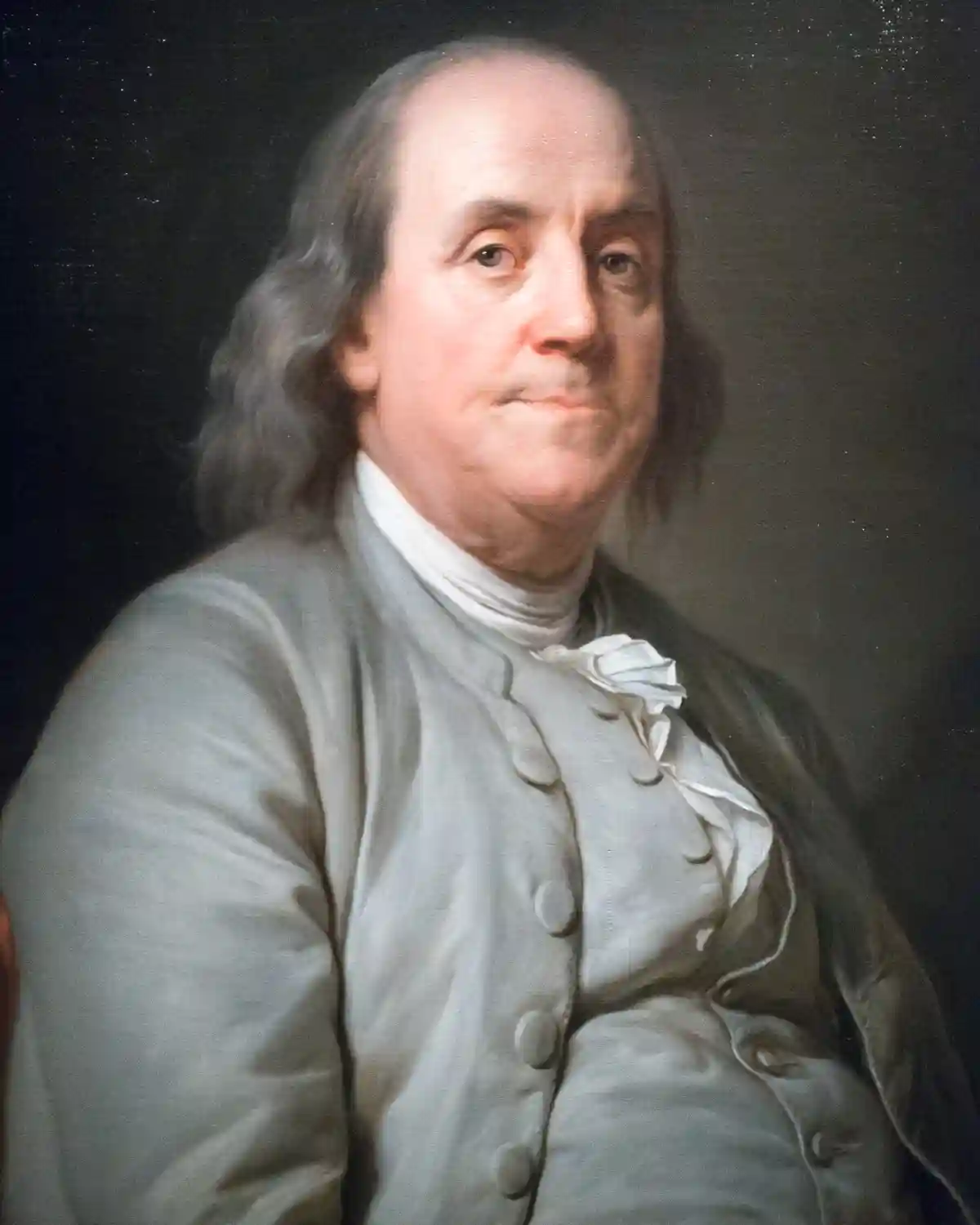
Celiac.com 04/06/2024 - Benjamin Franklin, one of America's most renowned Founding Fathers, was a man of many talents and achievements. From his contributions to science and literature to his pivotal role in shaping the nation's early history, Franklin's legacy is undeniable. However, behind the brilliance and accomplishments, there may have been a hidden health struggle that modern medicine could shed light on: celiac disease.
In this speculative exploration, we delve into the possibility of Benjamin Franklin having celiac disease. While no definitive medical records exist to confirm this hypothesis, we rely on historical reports of Franklin's health issues and current understanding of celiac disease symptoms to speculate on this intriguing aspect of his life.
Benjamin Franklin's Known Symptoms: Could They Mean Celiac Disease?
Celiac.com Sponsor (A12):
Historical accounts of Benjamin Franklin's health often mention various symptoms that could potentially align with celiac disease. Reports indicate that Franklin experienced chronic gastrointestinal issues, including bloating, gas, and diarrhea. These symptoms are hallmark indicators of celiac disease, a condition characterized by an immune reaction to gluten, a protein found in wheat, barley, and rye.
Furthermore, Franklin reportedly suffered from skin rashes and irritations, which are common extraintestinal manifestations of celiac disease. Dermatitis herpetiformis, a skin condition linked to celiac disease, often presents as itchy, blistering rashes on the elbows, knees, scalp, and buttocks. While historical descriptions of Franklin's skin issues are not conclusive evidence, they raise intriguing parallels with celiac-related dermatological symptoms.
Could A Genetic Sample Exist to Determine if Benjamin Franklin Had Celiac Disease?
Advancements in genetic testing have revolutionized our ability to diagnose and understand various medical conditions, including celiac disease. Genetic markers associated with celiac disease, such as the HLA-DQ2 and HLA-DQ8 genes, can be identified through DNA analysis. This begs the question: could a genetic sample from Benjamin Franklin or his descendants provide insights into his potential predisposition to celiac disease?
While obtaining a genetic sample from historical figures presents logistical challenges, it is not entirely implausible. Descendants of Benjamin Franklin may possess genetic material that could be analyzed for celiac-related markers. However, this hypothetical scenario would require extensive collaboration between historians, geneticists, and medical professionals to access and analyze such genetic data ethically and accurately.
Several locks of Benjamin Franklin's hair are known to exist, including one held by the Library Company of Philadelphia. Private collectors and museums also possess locks of Franklin's hair. While these physical items could potentially retain DNA that could be used for genetic analysis, the condition of the DNA and the feasibility of extracting viable genetic material depend on factors such as preservation methods and environmental conditions over time. If a suitable genetic sample could be obtained from these locks of hair, it might offer insights into whether Benjamin Franklin could have had celiac disease.
Exploring Franklin's Dietary Patterns: Clues to Celiac Disease?
Another aspect worth considering is Benjamin Franklin's dietary habits and preferences. Historical records suggest that Franklin adopted a vegetarian diet later in life, favoring fruits, vegetables, and grains like corn and possibly oats. While this dietary shift aligns with modern recommendations for managing celiac disease, it is essential to note that gluten-free diets were not recognized or understood during Franklin's era, and it is possible that he also included wheat and rye in his diet.
However, Franklin's reported avoidance of certain foods, particularly those that caused digestive discomfort, could indicate an intuitive response to gluten-related issues. Additionally, his documented interest in health and wellness, as evidenced by his writings on nutrition and exercise, hints at a potential awareness of dietary influences on well-being.
Given Franklin's reputation as a keen observer and a proponent of scientific inquiry, it's plausible to speculate that he may have used scientific methods to identify foods that caused him discomfort. Franklin was known to be health-conscious and mindful of his diet, which aligns with the behavior of someone who may have had undiagnosed celiac disease or gluten intolerance.
Historical records suggest that Franklin was selective about his food choices and avoided certain items that he believed were detrimental to health. He promoted moderation in eating and emphasized the importance of a balanced diet, indicating a level of awareness regarding the impact of food on well-being.
Considering his documented health issues, such as his gout and digestive complaints, it's reasonable to assume that Franklin may have experimented with different foods and dietary patterns to alleviate symptoms. His avoidance of heavy, rich foods and preference for lighter fare further support the notion that he was attuned to how food affected his body.
While there is no direct evidence linking Franklin to celiac disease or gluten intolerance, his lifestyle and dietary preferences suggest a level of awareness and experimentation that aligns with modern approaches to managing gluten-related disorders.
The Enigma of Benjamin Franklin's Health
In conclusion, the question of whether Benjamin Franklin had celiac disease remains an intriguing and speculative aspect of his life. While historical accounts provide glimpses into Franklin's health struggles, definitive evidence linking him to celiac disease is lacking. Future research, including genetic investigations and interdisciplinary collaborations, may offer new insights into Franklin's health legacy and the potential intersection with celiac disease.
As we continue to unravel the mysteries of historical figures' lives, Benjamin Franklin's health journey serves as a reminder of the complexities and nuances of medical history. Speculative explorations like this invite curiosity and dialogue, bridging the past with modern medical understanding in fascinating ways.



Recommended Comments
Create an account or sign in to comment
You need to be a member in order to leave a comment
Create an account
Sign up for a new account in our community. It's easy!
Register a new accountSign in
Already have an account? Sign in here.
Sign In Now